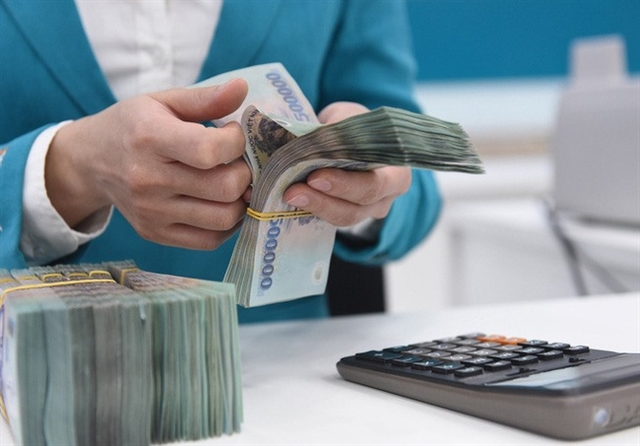 Economy
Economy

 |
| A bank teller counts cash at a transaction office in Hà Nội. Nearly VNĐ500 trillion of bank savings will come to maturity in the remaining months of this year and a part of it is forecast to flow into the stock market. — Photo courtesy of vtv.vn |
HÀ NỘI — The decreasing savings interest rate has been considered the main factor that makes investors to pour more money into the stock market and the trend is forecast to continue when nearly VNĐ500 trillion of savings come to mature in the remaining months of this year, experts forecast.
Data from Vietnam Securities Depository and Clearing Corporation (VSDC) showed more than 190,000 new securities accounts were opened in August 2023. This was the second consecutive month that saw the number of new accounts reach more than 150,000, the highest level in the past year. Most of them were accounts of domestic individual investors.
Liquidity of the stock market has also been increasing, with a recent session reaching up to US$1.5 billion.
Analysts said the decrease in interest rates will trigger more cash flow and investors to participate in the stock market. Capital flows into the stock market have shown positive signs since the end of the second quarter of this year.
Data from VNDirect Securities Company showed the total amount of idle money of investors at the 30 largest securities companies at the end of June was at about VNĐ61 trillion, down 36 per cent compared to the peak level at the end of the first quarter of 2022 but increasing slightly by 3.2 per cent compared to the previous quarter. The indicator continued to increase in July and August.
According to data from Yuanta Vietnam Securities, savings at banks in the fourth quarter of 2022 increased sharply by 6.4 per cent compared to the previous quarter, especially after the State Bank of Vietnam increased interest rates in October 2022 and the majority of the savings had terms from six to 12 months.
Therefore, Yuanta estimated savings at banks worth about VNĐ496 trillion will mature between June and December 2023 and a part of the savings will likely flow into the stock market in the second half of 2023.
As deposit interest rates are expected to continue to decrease, domestic investors tend to shift their bank deposits to other investment channels, including stocks.
Another favourable factor driving the stock market is that the economic growth rate in the last months of the year is expected to be more positive, which will help business performance results of listed firms rebound after a decrease of 20 per cent in Q1 2023 and 16 per cent in Q2 2023.
In particular, the low comparative base level in H2 2022 will help the growth rate this year with many industries to recover in the remaining months, according to Agribank Securities Company. — VNS




